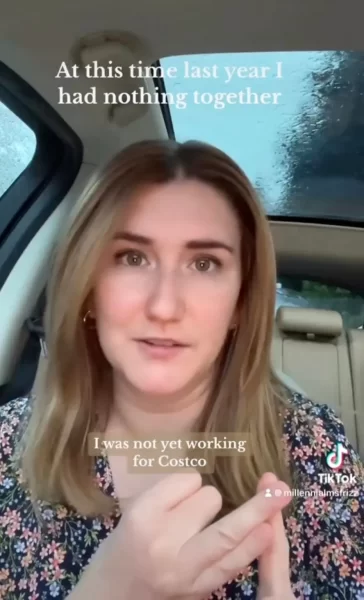Quiet Quitting is not slacking
Young business woman running along a grass pathway surrounded by colourful abstract shapes on a blue background Photo Credit: Getty Images
Quiet quitting, soft quitting, whatever you want to call it, is not slacking. Quiet quitting is receiving backlash, that quite frankly is not deserved. People say Quiet Quitting is just plain lazy, but maybe it’s just working smarter, instead of harder.
But what is Quiet Quitting? Quiet quitting for many is an alternative to resigning. People that participate in this ideology have the same motives as those that resign. It happens when workers begin to find themselves less willing to go above and beyond. Imagine employees only completing the tasks they’re being paid for?
Since the trend of Quiet Quitting has arisen, it has become apparent that going above and beyond is what workers were always expected to do. But why should people burn themselves out when they should get paid for doing only what is in their job description?
This initial TikTok trend has become much more, creating large controversy.
Employers have begun to come out saying that Quiet Quitting is a bad idea and worries them.
“There’s a difference between better work-life balance and “being totally disengaged,”” said Michelle Timmes, a human resource specialist, in an interview with NBC.
While this argument is true, it can also be argued that going above and beyond in your job can also remove any emotional investment a person has in their work. Going above and beyond has been seen to drain many. One worker doing just what’s necessary gets paid the same amount as the worker going above and beyond and is evidently less stressed. Why stress yourself out for the same pay?
This trend originated on TikTok. User Brian Creely, a career coach, posted a video in March showing an “Insider” article. The article talked about how people are fed up with the long hours at work. However, instead of quitting their job, they decide to take it easier at work.
“I feel quiet quitting isn’t slacking, rather just being smart,” says Ella Celozzi, a student at Naugatuck High School in an interview with The Greyhound News.
So is Quiet Quitting as bad of an idea as employers are making it seem. Or is it just smart? What’s the point in draining and making yourself unhappy when you have the option to do just what is needed and be happy with free time?. Why do more for the same outcome?

I'm a sophomore and I do not know what I want to pursue as a career. I took Journalism because I like to write and read, and this class gives me an opportunity...








